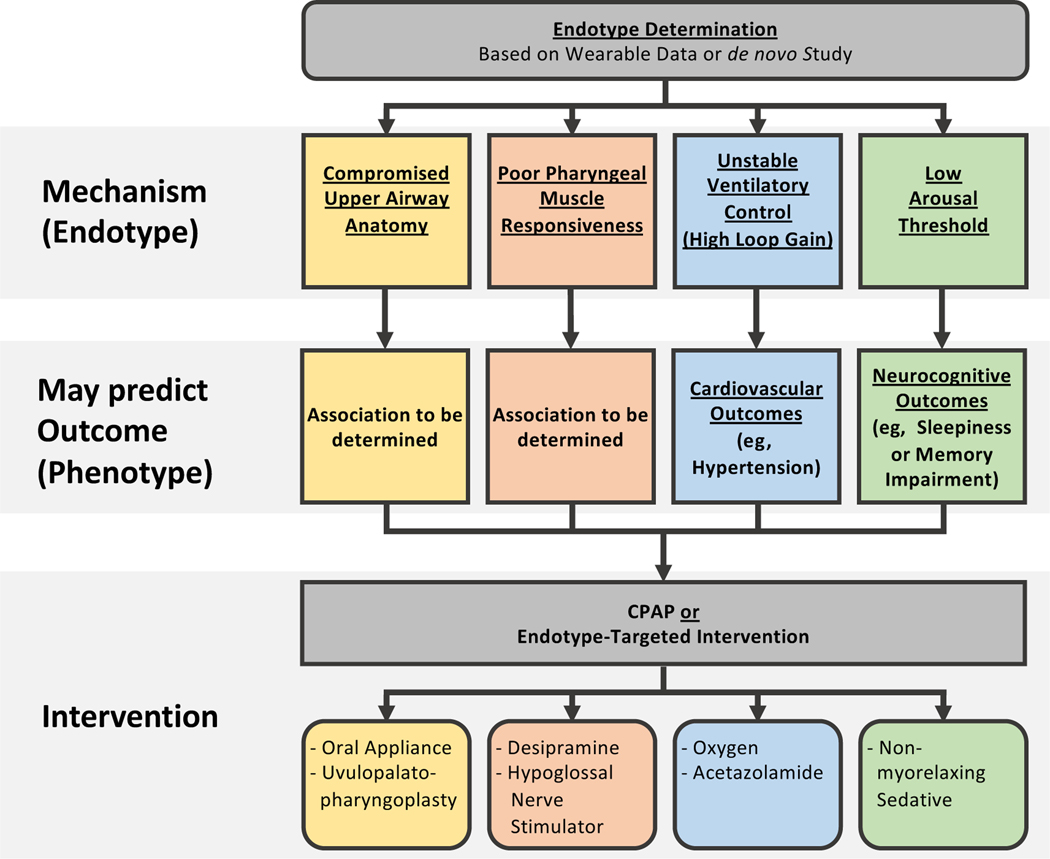Fig. 2.
Personalized medicine approach in clinical trial design based on endotypes. As discussed in the text, the authors speculate that an individual’s sleep apnea endotype may predict which adverse health outcomes this person is at risk for; it certainly is predictive of which interventions other than CPAP may be efficacious. In this para-digm, a trial seeking to improve hypertension would maximize its power (ie, chance of success) by enrolling primarily patients with OSA due to high loop gain using CPAP (or potentially oxygen) as the intervention. Note that in a given individual sleep apnea may be due to more than one trait, thus increasing the risk of several adverse health outcomes; for example, a patient with OSA from high loop gain and low arousal threshold may be at risk of both hypertension and impaired memory and thus be a good candidate for trials focusing on either outcome.

